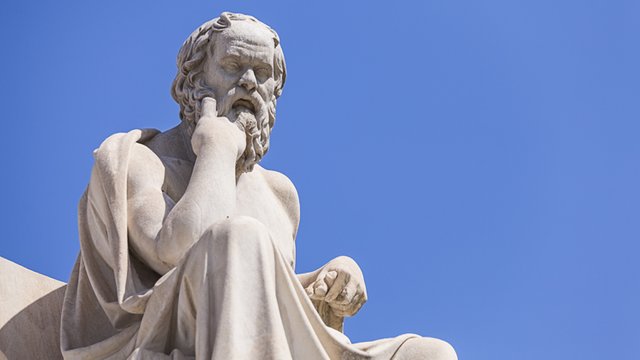Socrates - An insight into the Life of the Philosopher #2
Since the year 425 before Christ at the latest, Socrates has been known as a teacher and philosopher. He has made a lasting impression on a group of young aristocrats who flock to him as students and become loyal friends. One of his students compares Socrates with the flute-playing demi-god Marsyas. Marsyas enchanted people with his instruments and the power of his mouth. This student claims that Socrates aligns with short words what Marsyas does with his instrument. So he has often been put in such a state that it seemed to him that it was not worth living if he remained as he is, because he, Socrates, forces him to admit to himself that he still not knows much.
The friendship between Socrates and his students is filled with burning mutual love, but it is not the physical love of an older man for a younger one, as it was widespread in Athens at the time, it is the proverbial platonic love that unites them. Plato describes this love with intensity and restraint at the same time.
Socrates hardly earns any money with his philosophy. He does not let his students pay for him. He does not pursue the profession of sculptor that he learned. Socrates is married and has three children with his wife Xanthippe. Again and again, she accuses him of neglecting his family's needs. She wants to stop him, as she sees it, from floating around the public squares uselessly. In the eyes of his friends and students, Xanthippe is a quarrelsome wife. They even speak of her as the most unbearable woman who has ever lived. Socrates himself accepts the recurring domestic thunderstorms with equanimity.
Once when he leaves the house after a quarrel, Xanthippe pours a bucket of dirty water over his head. Looking up at his wife, the philosopher casually says: "Didn't I say that Xanthippe also gives rain when she thunders?"
By the way, Socrates is of the opinion that the constant domestic dispute also has something good about it. For those who have dealt with Xanthippe will find it easy to get along with other people as well. Perhaps Nietzsche is right when he says that without Xanthippe the skilled sculptor Socrates would never have become the philosopher Socrates, one of the pioneers of modern thinking. After all, it was her way of driving him to leave the house and to wit in public philosophical conversations.
Socrates sees an unconditional obligation for people to do the good and the right. From insightful thinking follows for him necessarily right action. He always tries to communicate this to his conversation partners, whether he has a highly decorated general or a donkey driver in front of him.

 Part 1
Part 1 

 Part 3
Part 3 


I didnt believe when I learnt that Socrates died by execution.
Hahahaha didn't I
Posted using Partiko Android
It seems no-one still believes it. We just know it without cognition.
It seems no-one still
Believes it. We just know it
Without cognition.
- sicadera
I'm a bot. I detect haiku.
And what about Platón it would be interesting a review about his life
@apontezzz
i also wrote about Platon :)
Platon - Part 1, 2, 3, 4
What are the sources for the text ?
i use very different sources @chrisaiki, from my old school assignments, lectures, works, schoolbooks to internet articles, texts, blogs to documentations and so on.